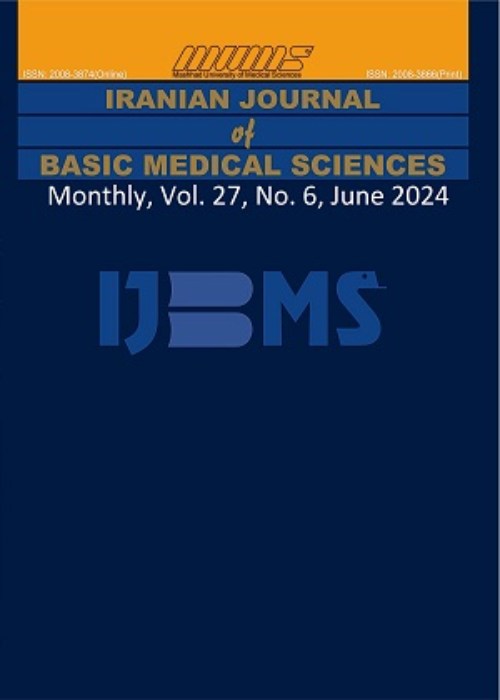Detection of Pseudomonas and Flavobacterium Species Harbouring Organophosphorus Degrading Elements from Environment
Author(s):
Abstract:
Objective
The extensive pollution of natural ecosystems has occurred by organophosphorus pesticides, being used for improvement of crop production in agriculture. Biodegradation is interested in application of multifunctional bacteria containing genetical elements which specially degrade organophosphorus compounds. In this paper the detection of two bacteria species, Pseudomonas and Flavobacterium, which harbouring organophosphorus degrading elements from environmental samples is reported.Materials And Methods
Several resistant strains isolated from different cultures that previously were cultivated with related sources such as soils and waters. These bacteria had been isolated from organophosphorus enriched mineral solutions, and following inoculation, visible colonies were observed on mineral and MacConkey’s agar medium. The resistant bacteria were identified by conventional procedures and monitored with certain properties like stability, tolerance, resistance to organophosphorus compounds and different antibiotics. The genetical elements for organophosphate degradation were confirmed by adding acridine orange to culture of resistant strains which could delete these capabilities. Results
Fifty strains were optimally grown in presence of three classes of organophophoruses like guthion, dimethoate and methyl parathion with concentrations of 2.5, 4, and 8 gl-1 respectively. The gram-negative bacteria were identified using conventional diagnostic procedures, asPseudomonas and Flavobacterium species. These strains were harbouring organophosphorus degrading elements which were deleted by acridine orange as mutagen. Also, most of these bacteria were resistant to different antibiotics that used as biomarkers in discrimination of sensitive strains to organophosphoruses.Conclusion
The genetical elements such as resistance to organophosphoruses and antibiotics were transferred to the sensitive bacteria by matting technique and cured as multifunctional organisms which had high capability for various organophosphoruses. The multi-degrading strains might be suggested as useful tools for detoxification of harmful organophosphoruses in agriculture.Language:
English
Published:
Iranian Journal of Basic Medical Sciences, Volume:10 Issue: 4, Winter 2008
Page:
239
magiran.com/p525875
دانلود و مطالعه متن این مقاله با یکی از روشهای زیر امکان پذیر است:
اشتراک شخصی
با عضویت و پرداخت آنلاین حق اشتراک یکساله به مبلغ 1,390,000ريال میتوانید 70 عنوان مطلب دانلود کنید!
اشتراک سازمانی
به کتابخانه دانشگاه یا محل کار خود پیشنهاد کنید تا اشتراک سازمانی این پایگاه را برای دسترسی نامحدود همه کاربران به متن مطالب تهیه نمایند!
توجه!
- حق عضویت دریافتی صرف حمایت از نشریات عضو و نگهداری، تکمیل و توسعه مگیران میشود.
- پرداخت حق اشتراک و دانلود مقالات اجازه بازنشر آن در سایر رسانههای چاپی و دیجیتال را به کاربر نمیدهد.
In order to view content subscription is required
Personal subscription
Subscribe magiran.com for 70 € euros via PayPal and download 70 articles during a year.
Organization subscription
Please contact us to subscribe your university or library for unlimited access!


